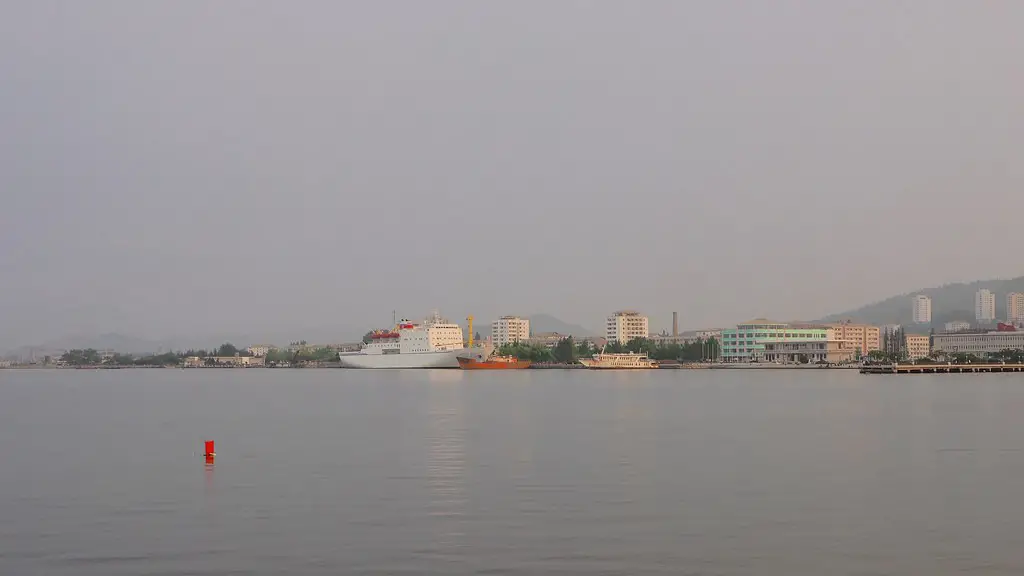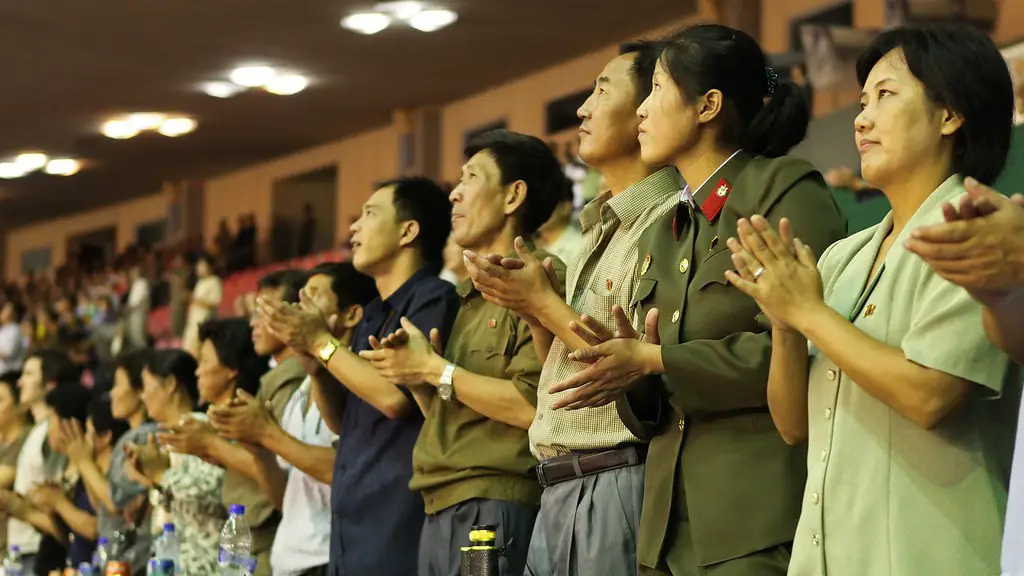History of the Problem
North Korea has been a major problem on the international stage for decades. Despite the signing of a ceasefire in 1953, tension on the Korean peninsula has remained high ever since. The North Korean regime has been accused of numerous human rights abuses, developing increasingly sophisticated nuclear weapons, and threatening neighbouring states. This has led to the question of whether a military attack against North Korea is a viable option or not.
Position of International Organizations
The United Nations has been at the forefront of trying to de-escalate tensions. The UN Security Council has repeatedly issued statements condemning North Korea’s nuclear tests and placed economic sanctions on the regime. The UN has urged parties to engage in dialogue and avoid further military action.
Experts have warned that any form of military strike on North Korea would be extremely unpredictable and could easily escalate into a full-scale war. This is why the majority of international organizations have so far been against any form of military intervention.
Economic Impact
It is estimated that a military attack on North Korea could cause economic damage worth around $231 billion. This cost would mainly be due to the destruction of infrastructure and the disruption of trade routes in the region. The economic impact on North Korea itself would be particularly severe, leading to further suffering of ordinary citizens.
It is also possible that the North Korean regime could respond by launching ballistic missiles or cyber-attacks on neighbouring states. The consequences of this could be devastating, as it would likely lead to a further escalation of the conflict and put millions of people at risk.
Opposing Viewpoints
There are some who argue that a military attack on North Korea is a necessary step in order to stop its nuclear activities. These people believe that only by applying military pressure can the North Korean regime be forced to change its behaviour.
However, there are also critics of this approach. These critics argue that such a military strike could have catastrophic consequences and could potentially lead to the deaths of hundreds of thousands of people. They also argue that it would be a violation of international law and would likely be condemned by the international community.
Political and Military Risks
The potential political and military risks of a military attack on North Korea should not be underestimated. North Korea is well-equipped with a very sophisticated military and has the ability to retaliate with devastating force.
As well as this, North Korea has an important ally in the form of China. If China were to become involved in the conflict, it could lead to a regional war with significant economic and political repercussions.
The Dynamics of the Conflict
The situation in the Korean peninsula is complex and dynamic. It is important to consider the different political and economic factors at play as well as the regional dynamics of the conflict. There is no one-size-fits-all solution to the North Korean problem and it is important to consider all options before deciding on military action.
The Role of the US
The US has long been the most influential power in the Korean peninsula. Its policy towards North Korea has changed significantly in recent years, shifting from one of “maximum pressure” to a willingness to engage in dialogue.
The current US administration has been clear that while they will not rule out military action, they believe that diplomacy is the best way to de-escalate tensions. The US has also been keen to work with China to find a resolution to the crisis.
The Role of China
China is arguably the most influential player when it comes to the North Korean crisis. China has long been the North Korean regime’s closest ally and has been instrumental in helping to reduce tensions on the Korean peninsula.
China has recently been pushing for talks between North Korea and the US, as well as advocating for economic aid to North Korea. China has also been involved in UN negotiations aimed at finding a peaceful solution to the conflict.
The Role of South Korea
South Korea has been at the forefront of trying to reduce tensions in the Korean peninsula. South Korea has offered to send humanitarian aid to North Korea, proposed talks with the regime, and has sought closer diplomatic ties with its northern neighbour.
South Korea is also a vital US ally, and it is vital that the US works closely with South Korea in order to find a peaceful and diplomatic solution to the crisis.
The Role of Japan
Japan has a vested interest in finding a resolution to the North Korean crisis. Japan has long been at odds with North Korea over a number of issues, including the North Korean policy of developing nuclear and ballistic missile technology.
Japan has been supportive of US efforts to pressure North Korea, but has also expressed its willingness to open talks with the regime. Japan is an important part of the international effort to de-escalate tensions in the region.
Limitations of Military Action
A military attack on North Korea is an option that should only be considered as a last resort. Attacking North Korea could have devastating implications for the region and would likely lead to a further escalation of the conflict.
Before any military action is taken, careful consideration must be given to the political, economic and military risks it could entail. It is important to explore all other non-military options before deciding that a military strike is the only viable option.


